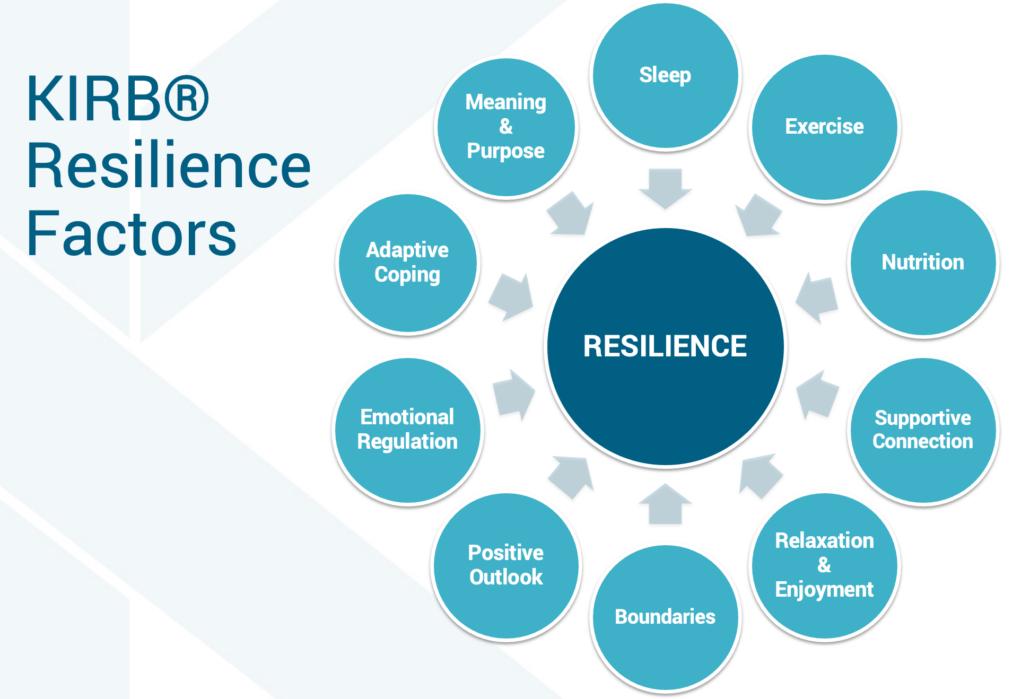Get in Touch
700 12th Street NW
Suite 700
Washington, DC 20005
The KIRB is a sophisticated assessment tool designed to help you analyze your behaviors and experiences in ten key areas that foundationally contribute to resilience. The KIRB helps you learn more about your current resilience profile and explore your:

Sleep
Sleep allows the brain and body to rest, repair, rebalance, and reorganize.
Exercise
Exercise and physical movement can help you reduce stress chemicals and maintain or build cardiovascular health, strength, balance, and flexibility.
Nutrition
What you eat and drink fuels your body and brain and influences your general health and wellbeing.
Supportive Connections
Supportive relationships allow you to give and receive help and experience care, belonging, and understanding.
Relaxation and Enjoyment
Activities unrelated to work that you find enjoyable and relaxing help refresh and refuel you.
Boundaries
Boundaries around work and other demands help create space for rest and sustain energy over time in demanding contexts.
Positive Outlook
Your attitude and perspective toward life influences your choices and emotional experiences. An outlook that contributes to resilience involves a sense of optimism, contentment, and enjoyment.
Emotional Regulation
Your ability to tolerate and manage strong emotions helps you use healthy coping strategies, maintain important relationships, achieve goals, and work effectively on problem-solving.
Adaptive Coping
How you approach and engage with challenges influences how effectively you can cope with difficulties and hardships, solve problems, and achieve important goals.
Meaning and Purpose
Beliefs and experiences that are meaningful contribute to resilience by fostering a powerful sense of energy, purpose, fulfillment, and enrichment.
After taking the KIRB, you receive your personal KIRB® Assessment Report containing:
KonTerra offers a variety of packages that enable clients to use the KIRB® with staff and teams. Our individual consultation and workshop packages are summarized below. Follow the links to learn more about KIRB & Consultation services, and KIRB & Training services.
Listen to Dr. Tim Calvey and Lisa McKay discuss the development of the KIRB®, what it measures, and how you can use it with your team.